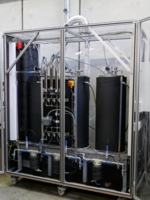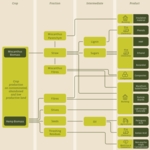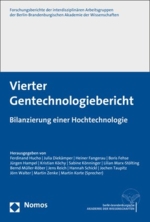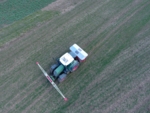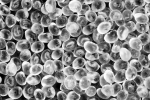-
Qualitative soil fertiliser - 10/07/2020
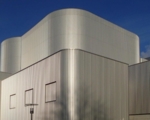
Recycled material instead of waste: wood ash is good for soil and plants - if the quality is right. The German Federal Quality Association for Food Ash ensures reliable wood ash standards with its certifications. The RAL-Dünger label for fertilisers provides the necessary certification for natural wood ashes to be used in the circular economy.
https://www.biooekonomie-bw.de/en/articles/news/how-natural-cycles-can-be-closed-wood-ash
-
-
The “Rhizo-Lentil" EIP-AGRI project - 20/05/2020
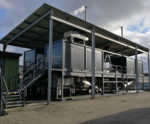
NovoCarbo GmbH produces biochar from plant residues such as wood chips, nutshells and manure. Different feedstocks, and the way these materials are processed, create biochars with different properties. This makes biochar suitable for different uses, including as a soil conditioner, in biogas plants or as bedding for stables and cowsheds. The Rhizo-Linse project is currently investigating whether biochar is also suitable as inoculant carrier for…
https://www.biooekonomie-bw.de/en/articles/news/novocarbo-turns-plant-waste-into-biochar
-
Dossier - 28/04/2020
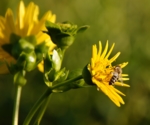
Biomass from forestry and agriculture along with residues from industry and households can contribute to our energy and raw material shift. Sustainable, regenerative biomass-based energy can become part of the energy mix of the future within the framework of a bioeconomy.
https://www.biooekonomie-bw.de/en/articles/news/Sustainable-bioenergy
-
Urban agriculture - 23/04/2020
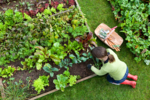
Given the challenges faced by modern agriculture, it is vital to raise people’s awareness of how to change their approach to food. The founders of the Stuttgart-based start-up company farmee GmbH see urban agriculture as the key to making this change possible. The company has developed “alphabeet”, an app designed to encourage consumers to produce their own food. After all, only those combining knowledge and practical experience can be expected…
https://www.biooekonomie-bw.de/en/articles/news/alphabeet-the-green-fingered-smartphone
-
Biosensors - 09/04/2020
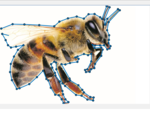
Sensor networks are one of the keys to achieving digitalisation of the bioeconomy. Sensor networks are on the way to becoming important analysis and control instruments for energy-efficient and sustainable material cycles. Dieter Hertweck, Professor of Business Information Systems at Reutlingen University of Applied Sciences, shows what is already possible in digital agriculture and waste recycling and what is feasible for the future.
https://www.biooekonomie-bw.de/en/articles/news/Sensors-for-the-bioeconomy
-
-
Biogas and wood as components of the energy transition - 10/02/2020
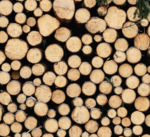
Decentralised, controllable and stable - renewable energy is an important component in the transition to a bioeconomy without fossil fuels. BIOPRO spoke to PD Dr. Andreas Lemmer from the State Institute of Agricultural Engineering and Bioenergy at the University of Hohenheim and Prof. Dr. Stefan Pelz, scientific director of the Institute for Applied Research and professorat the University of Applied Forest Sciences Rottenburg.
https://www.biooekonomie-bw.de/en/articles/news/New-perspectives-for-bioenergy
-
Producing valuable new products from waste materials - 07/01/2020
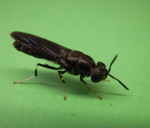
Eco-friendly and responsibly manufactured products are more in demand than ever before. Specific research is being carried out into materials and applications for a wide variety of uses. The Fraunhofer Institute for Interfacial Engineering and Biotechnology IGB is working with Hermetia Baruth GmbH on the vision of an insect biofactory that uses waste materials to produce a wide range of products such as biosurfactants, animal feed or foils.
https://www.biooekonomie-bw.de/en/articles/news/A-vision-insect-biorefineries-as-components-of-a-sustainable-bioeconomy
-
CRISPR/Cas9 and genetic engineering laws - 27/11/2019
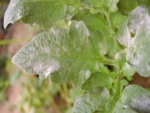
Plant geneticists from Tübingen have used genome deletion to breed a variety of tomato that is resistant to powdery mildew. The CRISPR/Cas9 technology that they used enabled them to achieve this in a relatively short period of time. They also demonstrated beyond any doubt that the new tomato variety contains no foreign DNA and is indistinguishable from naturally occurring deletion mutants.
https://www.biooekonomie-bw.de/en/articles/news/transgene-free-plant-breeding-using-genome-editing
-
Two-part interview part 2 | Prof. Dr. Ortwin Renn on the green genetic engineering debate - 26/08/2019
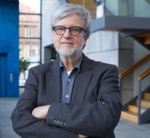
Many scientists are expecting revolutionary advances in research to come from new molecular biology tools such as the CRISPR/Cas gene scissors. These methods are very important for agriculture, especially plant breeding and nutrition. However, the debate on green genetic engineering 2.0 looks like it may once again be heading for ideological battles. We talked with Prof. Dr. Ortwin Renn and asked him about opportunities for better communication.
https://www.biooekonomie-bw.de/en/renn-green-genetic-engineering
-
Two-part interview part 1 | Prof. Dr. Regina Birner on the green genetic engineering debate - 12/08/2019

Green genetic engineering continues to divide opinion in Germany in the same way as CRISPR/Cas and other genome editing (GE) techniques. What are the consequences for the bioeconomy, which involves key areas of biotechnology? We talked with Prof. Dr. Regina Birner, agricultural economist and head of Hohenheim University’s Department of Social and Institutional Change in Agricultural Development at the Institute of Agricultural and Social…
https://www.biooekonomie-bw.de/agricultural-economist-birner-calls-for-other-forms-of-dialogue-besides-organized-interest-groups
-
-
Dossier - 15/04/2019

Plastic waste takes years to decompose and pollutes the environment. Nevertheless, plastics are an indispensable part of everyday life. It is therefore all the more important to find a meaningful alternative that is sustainable, environmentally friendly and has better properties and more functionality than conventional plastics. In addition, such an alternative should not be dependent in any way on fossil resources.
https://www.biooekonomie-bw.de/en/articles/dossiers/the-alternative-bioplastics
-
Article - 02/04/2019
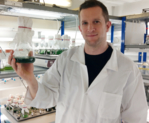
For many decades, glyphosate has been a common component of agricultural pesticides worldwide, although it is a controversial herbicide that may be harmful. The good news is that a more sustainable alternative is now in sight: researchers from the University of Tübingen have discovered a sugar molecule called 7-deoxy-sedoheptulose (7dSh) which inhibits the growth of plants and microorganisms, but appears to be completely harmless to human cells.
https://www.biooekonomie-bw.de/en/articles/news/simple-sugar-could-soon-compete-with-glyphosate
-
Article - 27/03/2019
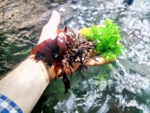
Algae are frugal organisms. They require only light, water, minerals and carbon dioxide to be able to produce biomass. These properties will now be exploited economically in a two-year research project. Dr. Stefan Sebök from the University of Hamburg plans to study the holistic utilisation of degradation products of a biogas plant in Wallerstädten by linking them to land-based algae cultivation.
https://www.biooekonomie-bw.de/en/articles/news/residues-from-biogas-plants-as-feed-for-algae
-
-
-
-
Dossier - 20/03/2017
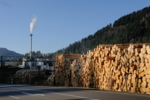
Petroleum is the raw material for basic chemicals. Growing demand and dwindling resources mean that the chemical industry is increasingly focusing on renewable resources. Lignin is a wood component that is proving to be a promising resource. It is currently almost exclusively used for generating energy, although it could also be used for other purposes. In Baden-Württemberg, a research consortium is specifically focused on exploring its…
https://www.biooekonomie-bw.de/en/articles/dossiers/lignin-a-natural-resource-with-huge-potential
-
-
-
Dossier - 16/06/2014
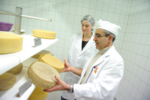
Biotechnology opens up numerous opportunities for the food industry. The targeted use of biotechnological methods can help reduce the quantity and number of unhealthy ingredients in foods as well as degrade allergenic substances. Genomic research and targeted breeding also greatly facilitate progress in agriculture. Food biotechnology therefore contributes significantly to saving resources, optimising harvest yields and producing better foods.
https://www.biooekonomie-bw.de/en/articles/dossiers/biotechnology-as-a-tool-for-the-production-of-food
-
Dossier - 16/12/2013
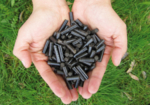
While the use of biotechnological methods for the purification of water, soil and air has already been state of the art for quite a few years, the use of microorganisms for the recovery of metal and mineral raw materials from industrial and agricultural waste has also started to attract the interest of scientists. This dossier addresses this topic, explains what geobiotechnology and urban mining are all about.
https://www.biooekonomie-bw.de/en/articles/dossiers/microbial-raw-material-recycling
-
Website address: https://www.biooekonomie-bw.de/en/search

